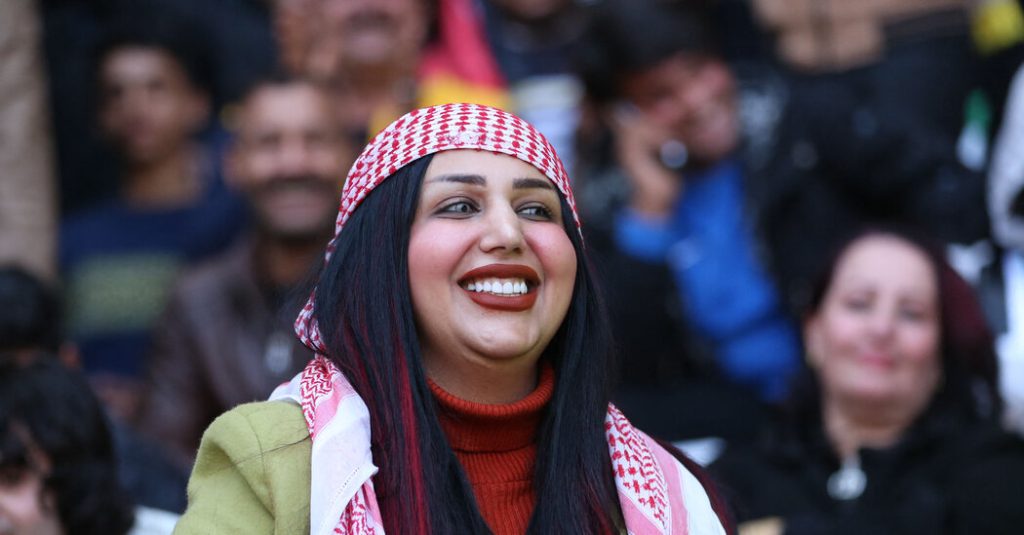In a shocking incident captured on CCTV, a prominent TikTok personality in Iraq, known as Um Fahad, was shot and killed by a helmeted assassin in less than 46 seconds. The victim, whose real name was Ghufran Mahdi Sawadi, had garnered a large following on social media platforms like TikTok and Instagram with her videos showcasing her in revealing clothing, singing, and spending time with her young son. However, her content had attracted criticism from conservative elements in Iraqi society and the government, leading to her imprisonment for 90 days at one point for a post showing her dancing at her son’s birthday party.
Despite her prominence, Um Fahad’s brother expressed doubts that her killer would be apprehended, citing other cases of innocent people being killed with no one being held accountable. The government’s lack of response and failure to investigate the killing raised concerns about the safety of social media personalities in Iraq. This incident was not an isolated one, as it marked the third killing of a young social media influencer in less than a year, believed to stem from Iraq’s crackdown on dissent and public displays of behaviors deemed secular and Western.
In response to public displays of behavior considered immoral, the Iraqi parliament passed legislation targeting LGBTQ individuals, criminalizing homosexual relations and gender transition assistance. This move was criticized by foreign officials, who warned against violations of human rights and free speech. Um Fahad had previously faced legal action for posting content deemed indecent or immoral under the government’s regulations on social media content. The new laws and regulations raised concerns about the restriction of freedom of speech and expression in Iraq.
The lack of progress in solving Um Fahad’s murder and the impunity enjoyed by perpetrators of violence against women and LGBTQ individuals raised alarms among women’s rights activists and human rights advocates. The apparent disinterest of law enforcement and government leaders in addressing such attacks highlighted the larger issue of women’s safety in Iraq. Critics pointed to the easy availability of surveillance footage in Baghdad, suggesting that solving crimes should not be a difficult task for the authorities.
The pattern of targeted killings of social media personalities in Iraq underscored a wider trend of intolerance towards behaviors deemed inconsistent with traditional or religious values. The strict regulations on social media content, the crackdown on dissent, and the silencing of voices critical of the government reflected broader efforts to maintain control and suppress opposition in the country. The ongoing threat to the safety of individuals expressing themselves online raised concerns about the erosion of fundamental rights and freedoms in Iraq.
The brutal killing of Um Fahad and other social media influencers highlighted the dangers faced by those who challenge social norms and speak out against oppression in Iraq. The failure of the government to investigate these crimes and bring perpetrators to justice further fueled concerns about the fragility of civil liberties and the rule of law in the country. As activists and advocates called for accountability and justice, the broader implications of these targeted attacks on freedom of expression and individual rights in Iraq remained a cause for alarm.


